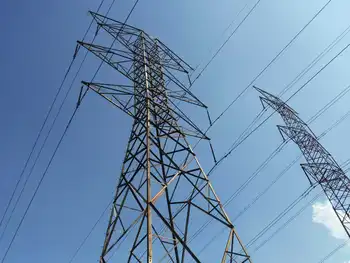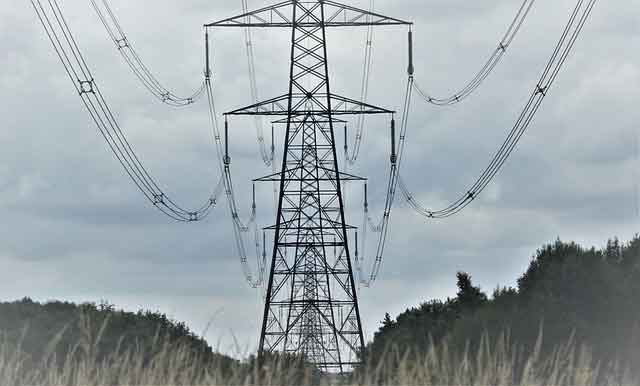UK EV Drivers Demand Fairer Vehicle Taxes

High Voltage Maintenance Training Online
Our customized live online or in‑person group training can be delivered to your staff at your location.

- Live Online
- 12 hours Instructor-led
- Group Training Available
UK EV Per-Mile Taxes are reshaping road pricing and vehicle taxation for electric cars, raising fairness concerns, climate policy questions, and funding needs for infrastructure and charging networks across the country.
Key Points
They are per-mile road charges on EVs to fund infrastructure, raising fairness, emissions, and vehicle taxation concerns.
✅ Propose tax relief or credits for EV owners
✅ Consider emission-based road user charging
✅ Invest in charging networks and road infrastructure
As the UK continues its push towards a greener future with increased adoption of electric vehicles (EVs) and surging EV interest during supply disruptions, a growing number of electric car drivers are voicing their frustration over the current tax system. The debate centers around the per-mile vehicle taxes that are being proposed and implemented, which many argue are unfairly burdensome on EV owners. This issue has sparked a broader campaign advocating for a more equitable approach to vehicle taxation, one that reflects the evolving landscape of transportation and environmental policy.
Rising Costs for Electric Car Owners
Electric vehicles have been hailed as a crucial component in the UK’s strategy to reduce carbon emissions and combat climate change. Government incentives, such as grants for EV purchases and tax breaks, have been instrumental in encouraging the shift from petrol and diesel cars to cleaner alternatives, even as affordability concerns persist among many UK consumers. However, as the number of electric vehicles on the road grows, the financial dynamics of vehicle taxation are coming under scrutiny.
One of the key issues is the introduction and increase of per-mile vehicle taxes. While these taxes are designed to account for road usage and infrastructure costs, they have been met with resistance from EV drivers who argue that they are being disproportionately affected. Unlike traditional combustion engine vehicles, electric cars typically have lower running costs compared to petrol or diesel models and, in many cases, benefit from lower or zero emissions. Yet, the current tax system does not always reflect these advantages.
The Taxation Debate
The crux of the debate lies in how vehicle taxes are structured and implemented. Per-mile taxes are intended to ensure that all road users contribute fairly to the maintenance of transport infrastructure. However, the implementation of such taxes has raised concerns about fairness and affordability, particularly for those who have invested heavily in electric vehicles.
Critics argue that per-mile taxes do not adequately take into account the environmental benefits of driving an electric car, noting that the net impact depends on the electricity generation mix in each market. While EV owners are contributing to a cleaner environment by reducing emissions, they are also facing higher taxes that could undermine the financial benefits of their greener choice. This has led to calls for a reassessment of the tax system to ensure that it aligns with the UK’s climate goals and provides a fair deal for electric vehicle drivers.
Campaigns for Fairer Taxation
In response to these concerns, several advocacy groups and individual EV owners have launched campaigns calling for a more balanced approach to vehicle taxation. These campaigns emphasize the need for a system that supports the transition to electric vehicles and recognizes their role in reducing environmental impact, drawing on ambitious EV targets abroad as useful benchmarks.
Key proposals from these campaigns include:
-
Tax Relief for EV Owners: Advocates suggest providing targeted tax relief for electric vehicle owners to offset the costs of per-mile taxes. This could include subsidies or tax credits that acknowledge the environmental benefits of EVs and help to make up for higher road usage fees.
-
Emission-Based Taxation: An alternative approach is to design vehicle taxes based on emissions rather than mileage. This system would ensure that those driving high-emission vehicles contribute more to road maintenance, while EV owners, who are already reducing emissions, are not penalized.
-
Infrastructure Investments: Campaigners also call for increased investments in infrastructure that supports electric vehicles, such as charging networks and proper grid management practices that balance load. This would help to address concerns about the adequacy of current road maintenance and support the growing number of EVs on the road.
Government Response and Future Directions
The UK government faces the challenge of balancing revenue needs with environmental goals. While there is recognition of the need to update the tax system in light of increasing EV adoption, there is also a focus on ensuring that any changes are equitable and do not disincentivize the shift towards cleaner vehicles, while considering whether the UK grid can handle additional EV demand reliably.
Discussions are ongoing about how to best implement changes that address the concerns of electric vehicle owners while ensuring that the transportation infrastructure remains adequately funded. The outcome of these discussions will be critical in shaping the future of vehicle taxation in the UK and supporting the country’s broader environmental objectives.
Conclusion
As electric vehicle adoption continues to rise in the UK, the debate over vehicle taxation becomes increasingly important. The campaign for fairer per-mile taxes highlights the need for a tax system that supports the transition to cleaner transportation while also being fair to those who have made environmentally conscious choices. Balancing these factors will be key to achieving the UK’s climate goals and ensuring that all road users contribute equitably to the maintenance of transport infrastructure. The ongoing dialogue and policy adjustments will play a crucial role in shaping a sustainable and just future for transportation in the UK.











